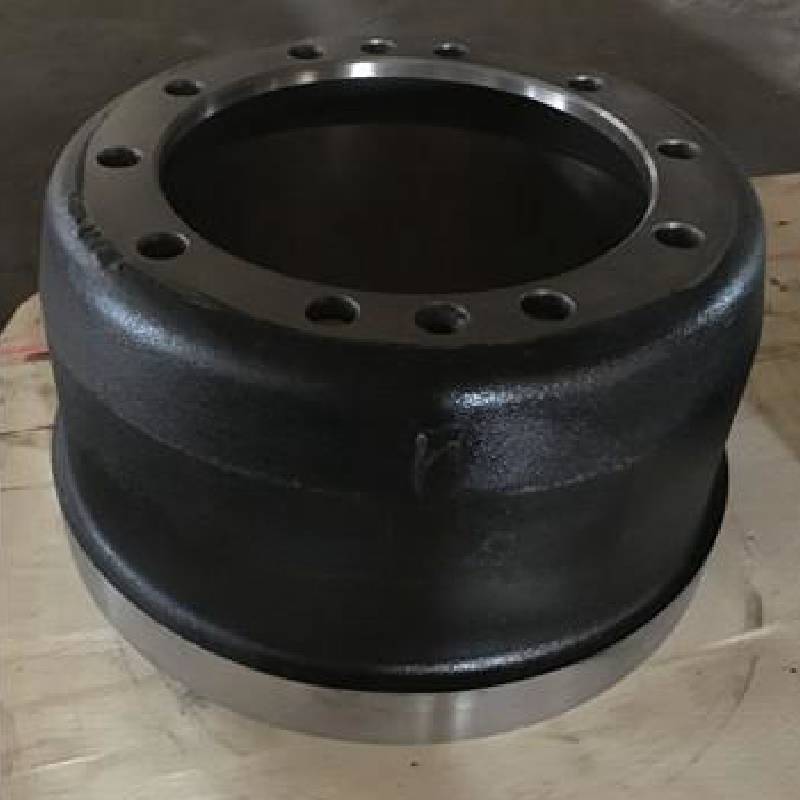Aug . 12, 2024 21:42 Back to list
Guide to Identifying the Size of Your Vehicle's Brake Drum for Maintenance Purposes
How to Determine the Size of Your Brake Drum
Brake drums play a crucial role in the braking system of many vehicles, particularly those with drum brakes. Knowing the correct size of your brake drum is essential for effective braking performance, as well as for proper maintenance and replacement. Below are detailed steps on how to accurately determine the size of your brake drum, ensuring safety and efficiency on the road.
Step 1 Understand Brake Drum Basics
Before diving into measurement, it's essential to understand what brake drums are and their function. A brake drum is a cylindrical component that houses the brake shoes in drum brake systems. When the brakes are applied, the shoes expand and press against the inner surface of the drum, creating friction that slows down the vehicle. The size of the brake drum directly influences the braking capability, as larger drums typically provide better heat dissipation and improved braking performance.
Step 2 Gather Necessary Tools
To measure the brake drum accurately, you will need a few tools - A caliper or a measuring tape A digital caliper is recommended for precise measurements. - A vehicle jack and jack stands To elevate the vehicle safely. - A wrench To remove the wheel and access the brake drum.
Step 3 Lift the Vehicle Safely
Once you have gathered your tools, the first step is to safely lift your vehicle. Use the vehicle jack to elevate one end of the car and secure it with jack stands. This is crucial for your safety, as you’ll need to have access to the wheels and brake drum without the vehicle potentially falling.
Step 4 Remove the Wheel
Using a wrench, remove the lug nuts from the wheel to take it off. Once the wheel is removed, you will have direct access to the brake drum. Inspect the drum for any visible markings or specifications. Sometimes, manufacturers engrave useful information directly on the drum itself.
how to tell what size brake drum you have

Step 5 Measure the Brake Drum
To measure the brake drum accurately, use the caliper to take two primary measurements the diameter and width of the drum.
1. Diameter Measure the inner diameter of the brake drum. Place the caliper’s tips at the inner edges of the drum and ensure a snug fit for an accurate reading. Most common brake drum sizes will fall between 9 inches and 12 inches, but always double-check your own measurement. 2. Width Next, measure the width of the drum. This involves taking a measurement from one side to the other, ensuring that you are measuring the flat area where the shoes make contact.
Step 6 Consult Specifications
With measurements in hand, consult your vehicle's owner manual or online resources specific to your car make and model. These resources will provide you with the original specifications for your vehicle's brake drum size, allowing you to determine if your current drum is the correct size or if it requires replacement.
Step 7 Consider Professional Assistance
If you find the measurements confusing or if you're uncertain about the brake drum condition, it might be wise to consult a professional mechanic. They can provide insights on whether the drums need resurfacing, replacement, or if they are functioning well within the required specifications.
Conclusion
Knowing the size of your brake drum is fundamental for the safety and performance of your vehicle. By following these simple steps—gathering tools, lifting the vehicle, removing the wheel, and measuring—you can accurately determine your brake drum size. Whether for maintenance, replacement, or upgrades, this knowledge empowers you to ensure that your vehicle remains safe and reliable on the road.
-
IVECO Brake Drums Durable OEM Replacement & Brake Drum Components
NewsMay.20,2025
-
Brake Drum Liza Durable & High-Performance Braking Solutions
NewsMay.20,2025
-
Brake Drum Liza High-Quality Drum Brake & Shoe Kits for Vehicles
NewsMay.19,2025
-
IVECO Brake Drums & Shoes - Durable OEM Replacement & Kits
NewsMay.19,2025
-
High-Performance Brake Drum Liza Durable Drum Brake Solutions
NewsMay.18,2025
-
Brake Drum Liza High-Quality Drum Brake & Shoe Compatibility
NewsMay.18,2025
